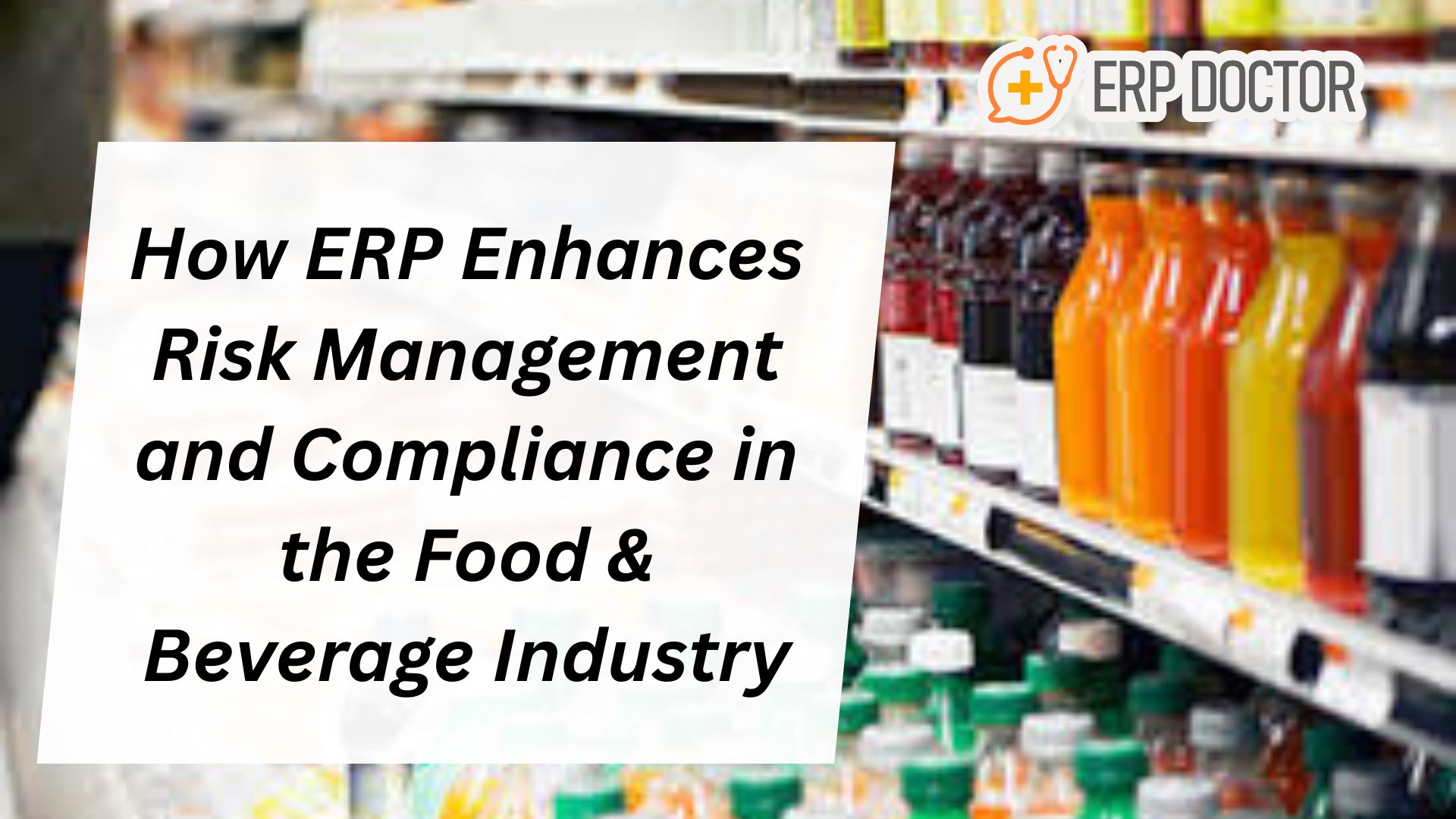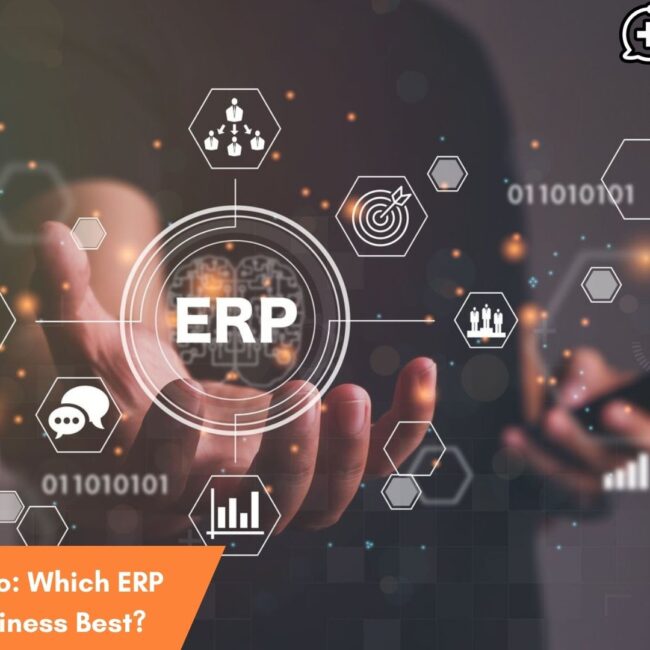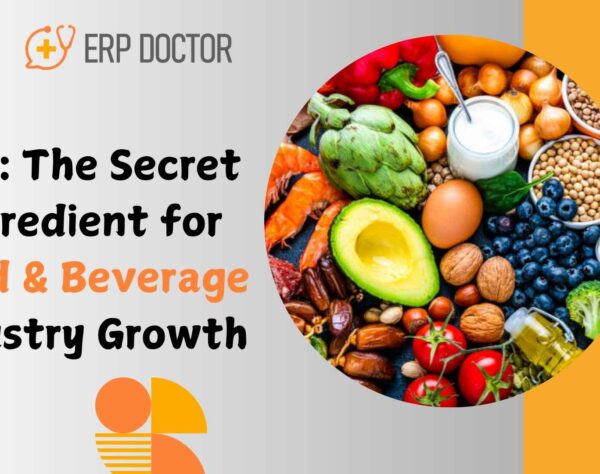
How ERP Enhances Risk Management and Compliance in Food & Beverage Industry

Why ERP is Essential for Compliance in Food & Beverage Sector
In today’s fast-paced Food & Beverage industry, companies must comply with strict regulatory standards while ensuring product quality, supply chain efficiency, and traceability. An ERP (Enterprise Resource Planning) system helps businesses in this industry achieve better risk management and compliance through automated workflows, real-time data insights, and improved operational transparency.
Why Risk Management and Compliance Matter in Food & Beverage industry
The Food & Beverage Industry is highly regulated due to the sensitive nature of food products and the potential for safety risks. Food & Beverage companies must adhere to global food safety standards such as:
- FDA (Food and Drug Administration) Regulations
- ISO 22000 and HACCP (Hazard Analysis Critical Control Point)
- Food Safety Modernization Act (FSMA)
Non-compliance can result in product recalls, hefty penalties, and reputational damage, making risk management a top priority for businesses. This is where ERP implementation for Food & Beverage industry becomes essential.
How ERP Enhances Risk Management and Compliance in F&B
1. Real-time Data for Proactive Risk Mitigation
ERP systems provide real-time visibility into all aspects of the supply chain, from raw material sourcing to distribution. Real-time data helps businesses identify potential risks early, ensuring faster corrective actions.
✅ Example: If a batch of ingredients is nearing expiration, the ERP system generates an alert, preventing the use of expired products and mitigating contamination risks.
2. Compliance with Regulatory Standards
ERP solutions offer built-in compliance features that align business processes with industry standards such as HACCP, ISO 22000, and FSMA. These systems automate compliance tasks, including:
- Traceability and batch tracking
- Documentation and audit trails
- Quality control and inspection processes
✅ Example: An ERP system ensures accurate recordkeeping for every step of the production process, ensuring compliance during audits.
3. Improved Traceability and Recall Management
Product traceability is critical for preventing contamination and managing recalls effectively. ERP systems allow end-to-end traceability, enabling businesses to track and recall defective products quickly.
✅ Example: If a supplier delivers contaminated ingredients, the ERP system helps track all affected batches, facilitating a swift and targeted recall.
4. Supplier and Vendor Risk Management
ERP systems evaluate supplier performance by tracking their compliance with safety standards and delivery schedules. This reduces the risk of sourcing low-quality ingredients or delayed supplies.
✅ Example: Vendor scorecards within the ERP system help identify underperforming suppliers, ensuring that only reliable vendors are retained.
5. Automation of Quality Control Processes
An ERP system automates quality checks throughout the production cycle, ensuring that products meet quality benchmarks before they reach the market. It reduces manual errors and improves quality consistency.
✅ Example: Automated quality checks ensure that only products meeting safety and compliance standards proceed to distribution.
Benefits of ERP Implementation for the Food & Beverage Industry
- Reduced Compliance Costs: Automating compliance processes minimizes manual efforts and operational costs.
- Enhanced Operational Efficiency: Real-time data and predictive analytics allow businesses to optimize workflows.
- Lower Risk of Recalls: Improved traceability and quality management reduce product recall risks.
- Increased Supply Chain Resilience: Better supplier management ensures uninterrupted supply and mitigates risks.
- Data-driven Decision Making: ERP analytics offer actionable insights, empowering managers to make informed decisions.
How to Choose the Right ERP for Risk Management and Compliance
When selecting an ERP for Food & Beverage Industry, businesses should prioritize the following features:
- Compliance Management: Pre-configured compliance templates and real-time audit tracking.
- Batch Traceability: End-to-end visibility for product tracking and recalls.
- Inventory Control: Alerts for expiration dates, contamination risks, and stock anomalies.
- Supplier Management Tools: Vendor performance tracking and risk assessment.
- Automated Quality Control: Workflow automation for inspections and quality checks.
FAQs: Why ERP is Essential for Food & Beverage Industry
✅ 1. How does ERP help manage risks in the Food & Beverage industry?
ERP systems provide real-time data, improve traceability, and automate quality checks to mitigate potential risks in the Food & Beverage industry.
✅ 2. Can an ERP system ensure compliance with food safety standards?
Yes, ERP systems come with built-in compliance features that align business processes with standards like HACCP, ISO 22000, and FSMA.
✅ 3. How does ERP improve traceability in the Food & Beverage industry?
ERP systems offer end-to-end traceability by tracking ingredients and finished products, making it easier to manage recalls and ensure product safety.
✅ 4. What are the key benefits of ERP implementation for Food & Beverage compliance?
ERP improves compliance by automating audits, maintaining accurate records, and enhancing quality control processes.
✅ 5. Can ERP systems prevent product recalls?
ERP systems reduce recall risks by monitoring product batches, identifying issues early, and maintaining detailed production data.
✅ 6. How does ERP manage supplier and vendor risks?
ERP tracks supplier performance, ensures timely delivery, and assesses vendor compliance to mitigate risks associated with poor-quality ingredients.
✅ 7. Does ERP help reduce compliance costs in the Food & Beverage industry?
Yes, by automating compliance processes, ERP minimizes manual efforts and reduces operational costs.
✅ 8. What quality control processes can ERP automate?
ERP automates quality checks, inspection reports, and corrective actions to maintain consistent product quality.
✅ 9. How does ERP enable proactive risk management in Food & Beverage?
ERP systems provide real-time alerts, enabling businesses to address potential risks before they escalate.
✅ 10. What should Food & Beverage companies consider when choosing an ERP system?
Food & Beverage companies should look for ERP solutions with features like compliance management, batch traceability, and automated quality control.
ERP implementation for Food & Beverage Industry is no longer a luxury but a necessity to ensure seamless risk management and compliance. By offering real-time insights, traceability, and process automation, ERP systems empower businesses to stay ahead of regulatory requirements while safeguarding their reputation. As the industry evolves, leveraging the power of ERP will be key to minimizing risks and maintaining operational excellence.
✅ Ready to enhance compliance and manage risks effectively? Explore ERP solutions for the Food & Beverage Industry today!







